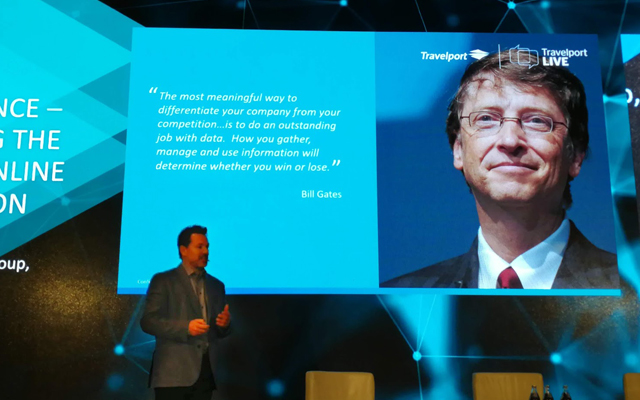Data in the 21st century, like oil in the 18th century, will offer huge rewards for those who see its fundamental value and learn to extract it. In travel, data has the transformative potential to drive growth and change in the sector.
“Data is the new oil in travel. With data explosion, we know so much in the last few years than the entire previous history of the human race,” said Mike Croucher, chief architect, Travelport, speaking at Travelport Live 2018, which took place in Bangkok last week.
The importance of data in this digital age was continually underscored throughout the two-day conference, with Travelport executives repeatedly urging travel agents to be more proactive in adopting technology into their business, including data-centric strategies.

“It’s no longer about having a technology strategy but data strategy. If you don’t have a data strategy, you won’t be here long,” stressed Rob Brown, group vice president and managing director – OTA at Travelport.
Travelport’s business intelligence manager Matthew Webb also advised travel agencies to adopt “customer data first” strategies. In an age where travellers increasingly value experiences, having data will enable companies to differentiate themselves through personalisation and in turn earn loyalty, he explained.
Major OTA players like Expedia has already invested in data and the extraction of it for market intelligence. “We have invested a lot on data to make sure we are getting one source of truth, and that we’re talking in the same language,” said Expedia’s vice president partner services Asia-Pacific, James Marshall.
B2B travel consolidator Via.com also understands the importance of data mining as a backbone of the company’s growth. “Without data, we’re nothing,” noted product manager Syed Faizan Admed, as data is used to understand behaviour of agents, airline performance, market trends, among others.
Like oil, data needs refining before its true value can be unlocked. But for many agents, especially smaller players in the sector, what’s standing in their way is not their lack of appreciation of data as a valuable commodity but the costs of turning information into intelligence.
Mila B Suarez, executive vice-president, Classic Travelhaus, said her company has a “data strategy somewhat”. But automating the collection of data presents the greatest challenge for the Philippine outbound agency, and while there are solutions available on the market their costs are often prohibitive, she remarked.
Like Suarez, Kelli Hampstead, head of travel technology at Travel Beyond Group Australia, shared that the TMC has not been able to leverage data fully and that finding a most suitable solution to harness data are challenges faced.
And there’s also a dark side to data. Unbalanced data-mining can bring a whole set of problems – privacy issues as well as discrimination when the information is in the hands of a few people, industry members pointed out.
The EU’s new privacy law, which restricts how data is collected and handled, is a reflection of the morality issues surrounding the harnessing of data from customers.
“It’s a fine line,” Travelport’s Brown conceded.




















